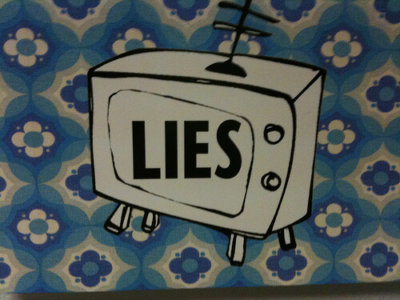Cognitive Distortions – Is Your Mind Playing Tricks On You?

By: COCOMARIPOSA
The things we consistently tell ourselves serve to shape our self-image and the way we interact with the world.
Unfortunately, our thoughts can become so automatic that we begin to take them as reality, even if that’s not actually the case.
What are cognitive distortions?
Cognitive distortions is a term used in psychology to refer to the thoughts that occur when our mind convinces us of something untrue.
These distortions almost always reinforce negative thoughts and emotions, which can lead to depression, anxiety, and mental illness.
Fortunately however, if we become aware of our cognitive distortions? We can learn to shift our thinking patterns and thus improve the quality of our lives.
13 Things You Tell Yourself that are Actually Cognitive Distortions
Below are 13 things that you may be telling yourself that are actually cognitive distortions.
1. If you ain’t first, you’re last.
Cognitive distortion: All or nothing thinking
This phrase was made popular by Will Ferrell’s character Ricky Bobby in the 2006 film Talladega Nights. All jokes aside, the belief that if you don’t win, you lose is a form of all or nothing thinking. Also referred to as black and white thinking, this type of cognitive distortion sees everything as black or white and fails to miss the many shades of grey in between.
Another common phrase that exemplifies this type of dichotomous thinking is “If it weren’t for bad luck, I’d have no luck at all”.
The reality is that everyone has misfortunes every now and then. You win some. You lose some. To see things as only one way or the other can seriously limit your thinking and lead to negative emotions.
Reframe: I didn’t place first, but third place is pretty good. I’m proud of myself and I’ll try even harder next time.
2. If I had just been there for him/her, this wouldn’t have happened.
Cognitive distortion: Personalisation
When we tell ourselves things like this, we are taking personal responsibility for events that are actually out of our control. This type of distorted thinking is referred to as personalisation.
A person engaged in personalisation takes everything, well, personally, and sees himself at the centre of every situation.
The reality is that sometimes, unfortunate things happen to people that we love and nothing we personally did or didn’t do could have changed that.
Reframe: I accept that some things are out of my control and that I can do nothing in my personal power to change them.
3. I always mess things up. I’ll never get anywhere in life.
Cognitive distortion: Overgeneralisation
Anytime you use the words always, never, ever, every, or all, it’s likely that you are overgeneralising. If you make one mistake and you instantly tell yourself, “I always mess things up”, “I never do anything right”, or “I’ll never get better”, it’s time to take a good look at your thinking patterns.
The reality is that you cannot draw conclusions from one, two, or even three single events. Just because you have made a mistake or two, doesn’t mean you are a failure.
Reframe: I’ve made a few mistakes, but I am learning. There is always room for improvement.
4. Anything that can go wrong will go wrong.
Cognitive distortion: Fortune telling
We’ve all heard this phrase referred to as “Sod’s Law”. This cognitive distortion is referred to as fortune telling, and involves using this phrase to arbitrarily predict negative outcomes in the future.
In reality, there are many possibilities for the future. Some outcomes are positive, and some negative. But, wouldn’t you rather be hopeful and optimistic about the future rather than look at it from a “doom and gloom” perspective?
Reframe: Every cloud has a silver lining. Even if something undesirable happens, there is still something to be gained from the situation.
5. I’m not good enough.
Cognitive distortion: Labeling
This is something we’ve all probably told ourselves a time or two in our lives. Telling ourselves that we aren’t good enough can shatter our confidence and keep us from taking risks or trying new things in life. Labelling is a more severe type of over-generalisation where people actually label themselves negatively.
The reality is that whether it’s “I’m not good enough”, “I’m a failure”, or “I’m such a loser”, none of these statements will make you feel good about yourself. Try replacing these thoughts with positive affirmations and work to achieve a balance where you also recognise your strengths.
Reframe: I am good enough. I can show myself self-compassion and accept myself just the way I am.
6. I should have ___ and then ____.
Cognitive distortion: Should statements
An example of this type of thinking is, “I should have worn the black tie to the interview and maybe I would have gotten the job”.
If you find yourself using the words should have, would have, could have, ought to have, or must, then you are likely engaging in a cognitive distortion. Try reframing the situation to see what you can learn from it rather than focusing on what you “should” have done differently.
The reality is that should statements serve no purpose other than to create negative emotions like guilt, shame, anger, or regret. We cannot change the past. Telling yourself that should have done this or you could have done that doesn’t change the fact that you didn’t do the said thing.
Reframe: I didn’t do ____, but I can’t change the past. However, I can learn from this experience and do things differently in the future.
7. I feel like he lied to me, so he must have.

By: Ged Carroll
Cognitive distortion: Emotional reasoning
Just because you feel a certain way doesn’t mean that it is accurate. For example, a person can feel scared even if there is no real external threat.
A person engaging in emotional reasoning mistakes their feelings for reality. It is best to look at situations objectively and detach from your emotions before making any critical judgments.
The reality is, sure, we all have intuition from time to time. Sometimes we have a gut feeling and it turns out to be right. But our feelings do not equal reality.
Reframe: I have a feeling that he lied to me, but that doesn’t necessarily mean he did. I will tell him how I feel and give him a chance to tell his side of the story.
8. When it rains, it pours.
Cognitive distortion: Catastrophising
We’ve all heard the adage, “When it rains, it pours”. It often seems like one thing goes wrong, everything starts to go wrong. But many people engaged in negative thinking take this to the extreme.
Catastrophising is a cognitive distortion where people make a mountain out of a molehill. They blow small things out of proportion and turn them into big things. This is a person who fails one exam and assumes he will fail the entire course.
The reality is that a little sprinkle is not the same thing as a downpour.
Reframe: Yes, there was a little bit of rain during our camping trip, but at least it wasn’t a thunderstorm.
9. It’s all his/her fault.
Cognitive distortion: Blaming
This cognitive distortion is the opposite of personalisation. Instead of seeing something as “all my fault”, a person engaged in blaming become a victim who always sees the fault being on someone else rather than himself.
The reality is, regardless of the situation you are in, it is never all someone else’s fault. You will always have some degree of responsibility for the events that take place in your life. Rather than point the finger at someone else, take the time to reflect on the part you played and take full personal responsibility for your own actions.
Reframe: I take responsibility for my role in the situation.
10. I can tell people don’t like me.
Cognitive distortion: Mind reading

By: Leon Riskin
A person engaged in mind reading assumes that he is psychic and can read the mind of others even if there is no outward confirmation of it being true.
If you find yourself saying things like “I can tell people don’t like me”, stop and examine the situation. Do you really have any evidence that this is true?
The reality is that we can’t know what someone else is thinking unless we ask them, and if we think we do, we are making assumptions based on our own insecurities.
Reframe: I cannot read other people’s minds. It is possible that I am projecting my own insecurities on to others.
11. I’m nobody special. Anybody could do what I do.
Cognitive distortion: Minimising
A person engaged in this cognitive distortion can never do anything right as he will always minimise his own accomplishments.
Unfortunately, the same person who minimises the good in his life will usually maximise and overgeneralise the bad.
The reality is that it is okay to give yourself a pat on the back for your achievements. You deserve it .If you find yourself downplaying your own strengths and talents, try shifting your thinking and praising yourself instead.
Reframe: I’ve worked really hard to achieve what I have. It’s okay to be proud of myself.
12. If they haven’t called by now, the news must be bad.
Cognitive distortion: Jumping to conclusions
Jumping to conclusions and assuming the worst just because time has passed will only create anxiety and other negative emotions within you. In these situations, it is best to be both patient and realistic.
the reality is that jumping to conclusions before you have all the evidence is unlikely to result in an accurate conclusion anyway, so you’re just wasting your time and energy.
Reframe: The doctor hasn’t called yet. But, the office may be busy. I’ll wait until I hear something before I make assumptions.
13. He complimented me. But, he was just being nice.
Cognitive distortion: Discounting the positive
It is all too common for people to discount compliments. Someone says “I like your shirt”, and you respond “This old thing?”
And brushing off compliments tends to be just a start for those who discount the positive. People who engage in this negative thinking pattern tend to discount anything and everything positive in their lives.
The reality is that nothing is all negative or all positive, but by always ignoring the positive you can suck the enjoyment out of your life and be left feeling inadequate, anxiety ridden, or just plain miserable. Rather than discount the positive, make it count. Soak it in and enjoy it. You’ll be glad you did.
Reframe: It feels really good to be complimented. I am grateful for his kind words. And there’s at least a 50% possibility he’s right.
Oh no, I am guilty of cognitive distortions… what do I do?
If you recognise any of these thought patterns within yourself, don’t fret – you can retrain your brain. Consider seeing a cognitive behavioural therapist who can assist you in monitoring your thinking and replacing distortions with more positive and uplifting thoughts.
Can you think of a cognitive distortion we’ve missed? Tell us below, we love hearing from you.







Hello,
I am 48. Father of girls aged 18 and 11. My wife works as a nurse in a hospital in Delhi, India. I quit my Job in 2015 to pursue my entrepreneurial dream of coming up with this next big thing in the startup world. It hasn’t happened yet but on the way, there have been massive learning curves and I feel better equipped now. But I am in this habit loop of engaging in self sabotage behaviors/thought patterns of being a looser, and not contributed my bit to my family or society at large. Apart from an appreciation certificate in school, I was not able to achieve any accolades in my entire school, college or work life. That makes me miserable when I compare myself to others who are now well placed in life with scores of degrees, medallions, accolades etc. I am now learning to appreciate my smallest victories and be grateful for whatever forward movement I have made in life till now. How can I teach myself to be happy with myself. I want to be happy and live in my present moment but my past comes up every now and then on the train of thoughts and ruins everything and keeps me stuck. I also have a habit of going into the future daydreaming that I will be one day this super rich guy with all the wealth and prosperity. Is something wrong with me? Why am I living so much in my head? It has become this frustrating loop of thoughts and associated actions that’s become my life. The work on My latest startup idea for which I was developing a software platform, has come to a halt with my wife and my children getting tested positive for Covid19. I feel as if universe has only bad things to offer to me. I am completely frustrated at this point of time. Can I achieve my elusive dream/goal? Am I dreaming too big? Why am I unable to succeed in whatever my mind focuses on? Am I thinking too many things?
Seeking help/guidance to live the life of my desires and dreams.
Hi there. First of all this is at root low self-esteem, likely related to childhood. In your unconscious mind you will have what are called limiting beliefs, things you assume are true, beliefs developed in childhood. They sound like, “I am not worthy”, “I deserve bad things”. These beliefs can be very embedded, and without realising it we again and again make decisions to ‘prove’ these beliefs true. The beliefs run the show. https://bit.ly/changebeliefsHT Until you truly believe you are worthy of being here and being loved, even if you were poor and alone and unsuccessful? And do the work to change those unconscious beliefs? Then nothing else will work. Working with a counsellor would be very helpful here. We’d highly recommend it. CBT might be a good start, or a therapy under the humanistic umbrella. Otherwise, self help tools we’d suggest are mindfulness, gratitude, and journalling. And maybe putting your focus on others would be helpful, even volunteering. You are always comparing up, never comparing down, and taking the time to see how lucky you are compared to others. You might want to read our article about comparing yourself to others https://www.harleytherapy.co.uk/counselling/comparing-yourself-to-others.htm Volunteering can help you realign your perspective, as can putting your attention on others. We notice your family is sick but you are still chiefly concerned with issues of success and what others think of you, for example…
Thank you for this website and section on cognitive distortion. I have been feeling extremely low the past several days. I recently stepped down from a job that was very stressful with multiple tasks daily. Now, that I am in the recovery phase after leaving the position, I realize that all my savings is running out, and unemployment has not kicked in yet due to Covid-19. This has increased my stress level and my need to find employment quickly. This is taking place during my much needed healing time. I am scared and frustrated with my previous employer as well as with myself. My heart really aches right now because I don’t really know what skills I have after working with my previous employer for seven years. I realize now that cognitive distortion is at play when I become stuck in regret. I really regret staying to long, I can’t really see my accomplishments after spending so much time trying please others and not please myself. It was a toxic experience. This article on cognitive distortion really helped me identify how its various forms in my life and internal thoughts. It 5:52am, I couldn’t sleep and was having some real negative thoughts about myself and consumed with fear. Thank you for this resource. I stumbled upon it while looking for help. This article was a very good start, and I learned a new term: cognitive distortion.
Really glad it helped! We can understand that you feel stressed, it’s a big transition, and money worries can make any situation feel worse. During stressful times black and white thinking can easily kick in. You might find our article on balanced thinking helpful, it offers a quick tactic for noticing then changing our thoughts. https://www.harleytherapy.co.uk/counselling/balanced-thinking-benefits.htm We’d also just add than when we are depressed our mind often only sees negatives, but we are fairly certain you did develop skills you aren’t seeing, try to look beyond the obvious. We learn things like dealing with others, dealing with a tough boss, these are all skills too! And sounds like you learned what DOESN’T work for you. That is also really valuable. It helps us know what we DO want next. Best, HT.
This article was really helpful. Thank you! My daughter has been feeling down lately. I asked her how she was and she said “I’m just tired.” Are there a set of questions that she could ask herself to help her evaluate this distortion? This statement seems to be a generalization and maybe asking what specifically that she is tired about? Is there some kind of worksheet or set of questions that she could follow to help her navigate when she has thoughts like this?
Hi there Annette, cognitive behavioural therapy (CBT) is designed to help us understand our thinking and learn how to have more balanced, helpful thoughts. We have an article that gives a trunctuated example of how you can use this process here https://www.harleytherapy.co.uk/counselling/balanced-thinking-benefits.htm. Note that it would be ideal if your daughter feels down to help her get outside support, as that creates a freer space for a child or teen to share in over talking to family, where they might not want to speak their truth for fear of upsetting others. And a counsellor could really help her with coping skills, and diagnose if she actually has depression. Best, HT.
Hi. I recently had sex with one girl and it was all alright till the 1.april. Then she made a joke about her pregnancy, like she handed me a an ultrasound picture from her which was just a picture of her stomach. And I thought for a moment that she is telling me she is pregnant, but she than told me that she was joking and i realized that it was april the 1, and that it was just and ultrasound picture of her medical control a few months before. But since than i started having these thoughts of that happening, which would be a disaster for me. She again told me that there is no anything to worry about, and i knew that there really wasn’t. But i started like everyday thinking about it and reassuring myself that this isn’t true. I became really anxious I even started to see more pregnant women around. And still today even tho i know everything is alright i still kinda worry about it. Is this like fortune telling or what. Thank you:)
CBT is just patient blaming and besides what if your cognitive distortion (see another blamjng terminology) is actually true?